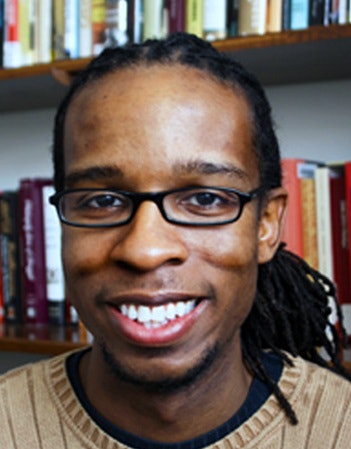 Ibram Kendi
Ibram KendiMoments after the verdict was read in the George Zimmerman murder trial, I poured out my feelings in social media like millions of people around the world.
“The veil of racial progress in America has been lifted from the world’s eyes tonight,” I typed, staring injustice in its ugly face.
Trayvon Martin, the jury told us, caused his own death. Zimmerman, who racially profiled, disobeyed police, killed an unarmed teenager, and left the murder scene without any major injuries, cannot be blamed and punished for it. How anyone could reach this conclusion is beyond the pale of common sense. But common sense rarely appears and sits next to racism in America.
In the aftermath of the verdict, some pundits are pointing to the prosecution’s conscious decision to take racism, or more precisely racial profiling, off the table of arguments. And many conscious Americans are nodding their heads in agreement. I am nodding too, but nodding to a point.
Asking these state prosecutors to talk about racial profiling is akin to asking George Zimmerman to take the stand and indict himself. That’s a pipe dream. Both were never an option, dooming the cause of justice from the start. And as the case dragged us along, the rugged and heartless self-interest of Zimmerman’s lies and Florida’s decision to hide racial profiling slapped us all in the face, day after day.
Malcolm X once thundered, “You’re going to his court expecting him to correct the problem. He created the problem. He’s the criminal. You don’t take your case to the criminal; you take your criminal to court.”
Florida state prosecutors, like prosecutors around the nation, are the overlords of a justice system based on racial profiling. They probably saw no problem in Zimmerman’s initial thoughts. Like you and I are Trayvon Martin, they are George Zimmerman. These prosecutors probably racially profile every day. The police officers, the judges they work with racially profile every day. They are not going to crucify themselves. They are not going to define and publicize the pervasiveness of racial profiling in Florida with the entire world watching. They refused to prosecute Florida, prosecute themselves.
The same refusal predestined injustice recently in Fisher v. University of Texas at Austin. The strongest argument for affirmative action is revealing the persistence and pervasiveness of racism in K-12 education in Texas. Texas could have shown that its K-12 racial inequality, the so-called achievement gap, resulted from state policy, not the inferior educational behavior of blacks as assumed. Even Justice Clarence Thomas stated in his opinion, “The Court has recognized that the government has a compelling interest in remedying past discrimination for which it is responsible.”
But Texas refused to go there, refused to accuse itself. And now affirmative action is on its death bed, looking out at racism mocking, cheering and running laps around the house outside.
We should not be surprised. Before anything or anyone else, Texas will look out for the interests of Texas, as will Florida. Hiding the ubiquity of racism in K-12 education in Texas and in the “justice” system in Florida is more important than expanding affirmative action, than imprisoning George Zimmerman.
Before our eyes, racial profilers prosecuted a racial profiler before a jury of racial profilers. And today, they are all walking away free with the ability to stalk and kill another Trayvon Martin.
Dr. Ibram X. Kendi (formerly Ibram H. Rogers) is an assistant professor of Africana studies at University at Albany — SUNY. He is the author of The Black Campus Movement: Black Students and the Racial Reconstitution of Higher Education, 1965-1972. Follow on Twitter at @DrIbram















